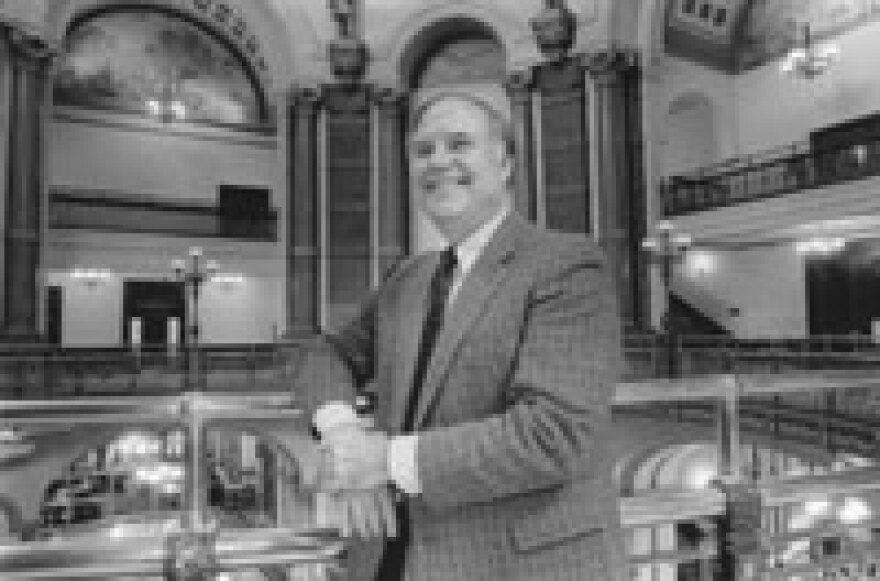After seeing colleagues in target legislative districts roasted throughout the just-concluded campaign season for supposedly voting against their constituents’ local interests, Illinois lawmakers may be tempted to approach their work from a decidedly parochial perspective.
That’s understandable, of course. No incumbent wants to provide ammunition to a future challenger intent on playing to the long-held regional animosities that characterize Illinois politics.
Downstate Democrats in particular are tired of being portrayed as lackeys of the Chicago political machine whenever they vote with the party’s city-based leadership or for any proposal benefiting city interests.
So Chicago-area mass transit leaders probably should not expect a warm reception later this month when they come to Springfield to ask the legisla- ture for an additional $135 million in operating subsidies they say is needed to forestall deep service cuts.
Leading the Statehouse mission is the Chicago Transit Authority, whose officials say that without an infusion of $82.5 million, the agency will be forced to reduce service by one-fifth come January to make ends meet in 2005.
Besides endorsing the CTA’s request, the Regional Transportation Authority, which oversees mass transit in the Chicago area, also is seeking another $35 million for Metra, the commuter rail service, and $17 million more for Pace, the suburban bus system.
The funding plea already has met with predictable opposition from suburban and downstate political leaders. Some suburbanites don’t trust the CTA’s budget numbers and want its books examined by independent auditors. Others argue the agency is top-heavy with politically connected administrators and should cut patronage payrolls before asking for more dollars from taxpayers.
Lurking in the background is a suspicion that the CTA’s current financial crisis is cover for a Chicago scheme to grab control of the RTA board and snatch money now earmarked for suburban transit needs.
Downstaters are on alert lest the mass transit folks finagle gasoline tax dollars away from the state’s road fund, further threatening highway construction projects already delayed because hundreds of millions of dollars have been siphoned off to pay general government costs.
Meanwhile, the millions of Illinoisans who have never set foot on an L train or ridden a CTA bus might well wonder, why should we care about what’s basically a Chicago problem?
The short answer, of course, is that it’s not just a Chicago problem, but one with potential statewide impact. The network of trains, buses and subways in northeastern Illinois is a vital part of the region’s infrastructure, essential to its economy. Almost 2 million people use mass transit in the six-county region each day, many of them on the way to and from work or school. Minus a fifth of the trains and buses and the passengers they carry, the Chicago area’s legendary rush-hour traffic jams — already rated third-worst in the nation — would intensify on area roads and highways.
But mass transit benefits more than its riders and the drivers who don’t have to compete with them on the region’s clogged expressways. By offering an attractive alternative to the automobile, mass transit limits both gasoline use and vehicle-spawned air pollution. And noxious tailpipe emissions respect neither city limits nor county lines.
One can quibble with the fine print in the CTA’s budget plans — and an independent audit is not a bad idea — but the underlying financial pressures are undeniable. The two major funding sources for Chicago-area mass transit are farebox revenues and local sales taxes — the equivalent of 1 percent in Cook County and 1/4 percent in the five collar counties — have suffered during the current economic slump. High unemployment means fewer riders paying fares and fewer paychecks to
purchase goods subject to the sales tax.
While revenues have been flat in recent years, and federal operating subsidies axed, expenses have risen steeply, especially for employee health care and workers’ compensation. Energy costs also are up sharply and $50-plus-a-barrel crude oil suggests a decline is not imminent.
CTA officials also cite the 21-year- old formula under which sales taxes collected in the six-county region are divided among the three service providers. The formula allocates to the CTA all the sales taxes collected in Chicago and 30 percent of the take in suburban Cook County. Metra gets 55 percent of the receipts from the Cook County suburbs and 70 percent from the collar counties, while Pace receives the remaining 15 percent from suburban Cook and 30 percent from the collars.
Changes in housing and shopping patterns over the last two decades have resulted in faster revenue growth for Metra than for the CTA, which city transit officials contend now receives less than 60 percent of regional funding despite carrying more than 80 percent of the area’s mass transit riders. They’ve argued for changing the allocation to reflect actual ridership and costs, rather than geography.
Any sweeping revision of what was essentially a compromise between competing partisan and regional interests probably should be considered in the spring, not during a limited fall session, although one might note parenthetically that both the 1973 legislation creating the RTA and the 1983 bill providing the sales-tax-linked subsidy passed in fall sessions.
But lawmakers would do well to set aside their provincial blinders to find some way to help the RTA and its service providers through their present budget problems, because a sound mass transit system in the Chicago area is important for all Illinoisans.
Charles N. Wheeler III is director of the Public Affairs Reporting program at the University of Illinois at Springfield.
Illinois Issues, November 2004






